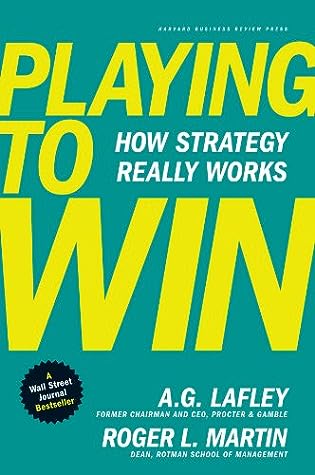More on this book
Community
Kindle Notes & Highlights
When a strategy succeeds, it seems a little like magic, unknowable and unexplainable in advance but obvious in retrospect.
It isn’t. Really, strategy is about making specific choices to win in the marketplace. According to Mike Porter, author of Competitive Strategy, perhaps the most widely respected book on strategy ever written, a firm creates a sustainable competitive advantage over its rivals by “deliberately choosing a different set of activities to deliver unique value.”1
When an organizational bias for action drives doing, often thinking falls by the wayside.
They define strategy as a vision. Mission and vision statements are elements of strategy, but they aren’t enough.
They define strategy as a plan. Plans and tactics are also elements of strategy, but they aren’t enough either. A detailed plan that specifies what the firm will do (and when) does not imply that the things it will do add up to sustainable competitive advantage.
They deny that long-term (or even medium-term) strategy is possible.
They define strategy as the optimization of the status quo. Many leaders try to optimize what they are already doing in their current business. This can create efficiency and drive some value. But it isn’t strategy.
They define strategy as following best practices. Every industry has tools and practices that become widespread and generic.
Sameness isn’t strategy. It is a recipe for mediocrity.
it is only through making and acting on choices that you can win. Yes, clear, tough choices force your hand and confine you to a path. But they also free you to focus on what matters.
strategy is a coordinated and integrated set of five choices: a winning aspiration, where to play, how to win, core capabilities, and management systems.
Strategy can seem mystical and mysterious. It isn’t. It is easily defined. It is a set of choices about winning. Again, it is an integrated set of choices that uniquely positions the firm in its industry so as to create sustainable advantage and superior value relative to the competition.
What is your winning aspiration? The purpose of your enterprise, its motivating aspiration. Where will you play? A playing field where you can achieve that aspiration. How will you win? The way you will win on the chosen playing field.
What capabilities must be in place? The set and configuration of capabilities required to win in the chosen way. What management systems are required? The systems and measures that enable the capabilities and support the choices.
integrated cascade of choices
Each level in the organization has its own strategic choice cascade.
Strategy can be created and refined at every level of the organization using the choice cascade framework.
Aspirations are statements about the ideal future. At a later stage in the process, a company ties to those aspirations some specific benchmarks that measure progress toward them.
next two questions are where to play and how to win. These two choices, which are tightly bound up with one another, form the very heart of strategy and are the two most critical questions in strategy formulation.


